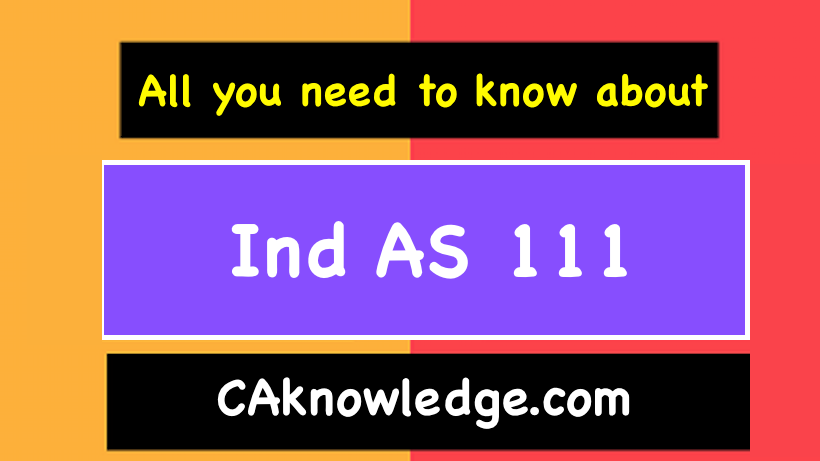Ind AS 111, Joint Arrangements: The objective of Ind AS 111 is to establish principles for financial reporting by entities that have an interest in arrangements that are controlled jointly (i .e., joint arrangements). The Standard requires a party to a joint arrangement to determine the type of joint arrangement in which it is involved by assessing its rights and obligations arising from the arrangement.
Ind AS 111
The Standard shall be applied by all entities that are a party to a joint arrangement. A joint arrangement is an arrangement of which two or more parties have joint control. Joint control is the contractually agreed sharing of control of an arrangement, which exists only when decisions about the relevant activities require the unanimous consent of the parties sharing control.
A joint arrangement is either a joint operation or a joint venture.
The Standard classifies joint arrangements into two types—joint operations and joint ventures. The classification of a joint arrangement as a joint operation or a joint venture depends upon the rights and obligations of the parties to the arrangement. A joint operation is a joint arrangement whereby the parties that have joint control of the arrangement have rights to the assets, and obligations for the liabilities, relating to the arrangement. Those parties are called joint operators. A joint venture is a joint arrangement whereby the parties that have joint control of the arrangement have rights to the net assets of the arrangement. Those parties are called joint venturers.
An entity determines the type of joint arrangement in which it is involved by considering its rights and obligations. An entity assesses its rights and obligations by considering the structure and legal form of the arrangement, the contractual terms agreed to by the parties to the arrangement and, when relevant, other facts and circumstances.
The Standard requires a joint operator to account for the assets, liabilities, revenues and expenses relating to its interest in a joint operation in accordance with the Ind AS applicable to the particular assets, liabilities, revenues and expenses.
The Standard requires a joint venturer to recognise its interest in a joint venture as an investment and to account for that investment using the equity method in accordance with Ind AS 28, Investments in Associates and Joint Ventures, unless the entity is exempted from applying the equity method as specified in that standard.
Recommended Articles
